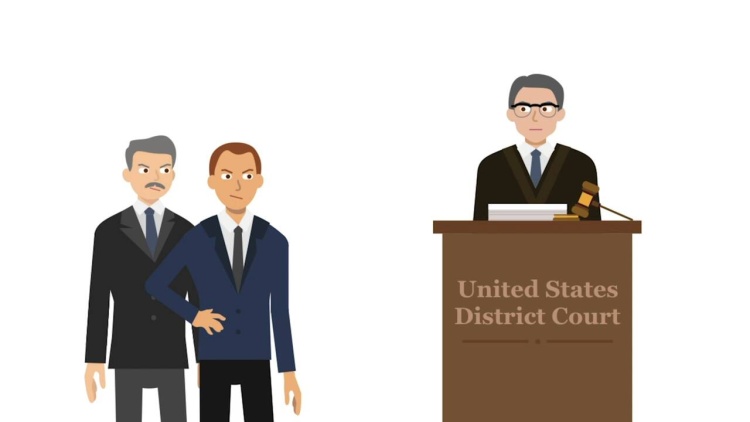Kastigar v. United States
United States Supreme Court
406 U.S. 441 (1972)
- Written by DeAnna Swearingen, LLM
Facts
The Central District of California subpoenaed Kastigar and another (defendants) for a grand-jury hearing. The government granted the defendants immunity under 18 U.S.C. § 6002, which provides immunity from the use of the compelled testimony and any evidence derived from that testimony in any criminal case other than a prosecution for perjury, making a false statement, or some other failure to comply with the order to testify. The defendants argued that the immunity granted was not as broad as the privilege against self-incrimination and could not justify compulsion of their testimony. The district court rejected these arguments and ordered the defendants to testify. When the defendants refused, the district court found them in contempt and ordered them to remain in the attorney general’s custody until they testified or the grand jury expired. The United States Court of Appeals for the Ninth Circuit affirmed. The United States Supreme Court granted certiorari to address whether a witness’s testimony could be compelled by the grant of use-and-derivative-use immunity (i.e., immunity from the use of the compelled testimony and any evidence derived from that testimony) or whether a grant of transactional immunity (i.e., immunity from prosecution for offenses related to the compelled testimony) was required to compel testimony normally protected by the Fifth Amendment privilege against self-incrimination.
Rule of Law
Issue
Holding and Reasoning (Powell, J.)
Dissent (Marshall, J.)
Dissent (Douglas, J.)
What to do next…
Here's why 907,000 law students have relied on our case briefs:
- Written by law professors and practitioners, not other law students. 47,100 briefs, keyed to 996 casebooks. Top-notch customer support.
- The right amount of information, includes the facts, issues, rule of law, holding and reasoning, and any concurrences and dissents.
- Access in your classes, works on your mobile and tablet. Massive library of related video lessons and high quality multiple-choice questions.
- Easy to use, uniform format for every case brief. Written in plain English, not in legalese. Our briefs summarize and simplify; they don’t just repeat the court’s language.





